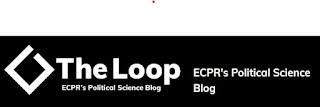Misinformation, democracy, and the peace journalism solution
Part I
Mis and disinformation, and their corrosive impact on democracy, have been on my professional front burner since I presented at a session about this topic at the World Forum for Democracy's meeting in Strasbourg, France in 2019.
In this post, I wrote about my Strasbourg presentation titled, “Disinformation, Democracy, and the Peace Journalism Solution.” I defined disinformation, (the use of lies, half-truths, and irrational content to manipulate public opinion), and discussed its purposes (distracting, obscuring truth, inspiring action, and shaping the information environment) and characteristics (it works best when targeting pre-existing divides and prejudices within a society). Then, I discussed how peace journalism is an effective tool for countering disinformation.
In Strasbourg, I met Titus Alexander from Crick Centre for the Public Understanding of Politics at the University of Sheffield, who shares my interest in misinformation and democracy. Alexander is one of the driving forces behind a blog called The Loop. (I'll provide the link once it's posted). He invited me to write an article about mis/disinformation, democracy, and peace journalism for The Loop, and I took him up on the offer.
Below is the first of two parts of this article. In Part I, I discuss the intersection of misinformation and democracy.
Mis and disinformation are an existential threat to
democracy.
This threat, underscored during recent elections in the
U.S, Brazil, South Korea, Kenya, and elsewhere, has been extensively researched
and analyzed.
In the U.S., misinformation is eroding the public’s
confidence in democracy. A 2022 NPR survey found that 64% of the American
population believes that U.S. democracy is in crisis and is at risk of failing.
70% of respondents said that democracy was more at risk of failure now than it
was in 2021. In article for the
Brookings Institution, Gabriel Sanchez observes, “One of the drivers of
decreased confidence in the political system has been the explosion of
misinformation deliberately aimed at disrupting the democratic process. This
confuses and overwhelms voters. Throughout the 2020 election cycle, Russia’s
cyber efforts and online actors were able to influence public perceptions and
sought to amplify mistrust in the electoral process by denigrating mail-in
voting, highlighting alleged irregularities, and accusing the Democratic Party
of engaging in voter fraud. The ‘big lie’…has lasting implications on voters’
trust in election outcomes.”
This is also true in Europe. Writing for the Universityof Birmingham’s website, Dr. Merten Riglitz says, “Major democratic institutions,
such as the UK’s House of Commons and the European Commission, have correctly
identified fake news as a threat to their values and processes, but the real
danger lurks in the corrosive effect that these online lies have on citizens’
trust in their democracy. Reputable polling evidence shows that fake news leads
to a loss of trust of citizens in each other - a major cause of destabilising
democratic processes and undermining the benefits that morally justify
democratic institutions.”
The impact of misinformation may be especially pronounced
in the developing world. On the Council on Foreign Relations blog, Conor
Sanchez writes, “As the technology to deceive improves, verifying authentic
content online will only become more difficult, raising its potential to sow
social discord and lower people’s trust in their institutions. These trends are
worrisome enough for advanced economies, but they portend an immediate crisis
in emerging and developing economies, where institutions are more fragile and
access to unlimited data is still prohibitively expensive.”
A report by the European Parliament concludes,
“Disinformation also has far-reaching implications for human rights and
democratic norms worldwide. It threatens freedom of thought, the right to
privacy and the right to democratic participation, as well as endangering a
range of economic, social and cultural rights. It also diminishes broader
indicators of democratic quality, unsettling citizens’ faith in democratic
institutions not only by distorting free and fair elections, but also fomenting
digital violence and repression.”
In Part II, coming soon, I'll discuss how peace journalism can be used to combat mis and disinformation.

No comments:
Post a Comment